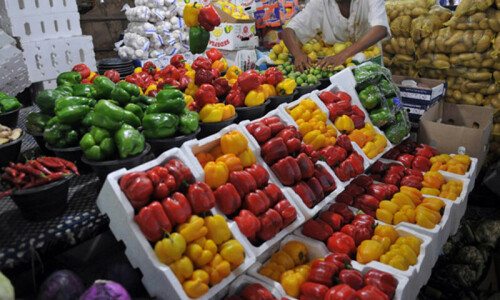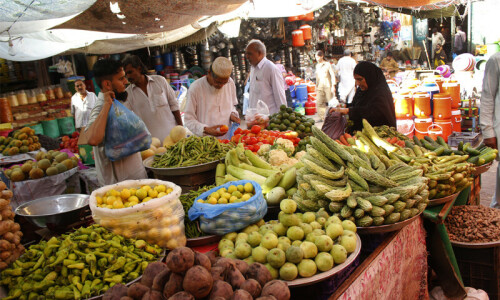KARACHI, Aug 26: Orders were issued on Tuesday for the initiation of legal action against some 25 tanneries which are not treating their effluents before discharge.
The director-general of the Sindh Environmental Protection Authority (Sepa), Dr Mohammed Ali Shaikh, issued these directives in accordance with the provisions of the Pakistan Environmental Act 1997, during a visit to the Combined Effluent Treatment Plant which operates in the Korangi Industrial Area under the aegis of the Pakistan Tanners’ Association (PTA).
The Sepa director-general had been asked to visit the site and report to the minister for environment and alternate energy, Askari Taqvi, who had received reports that certain tanneries were discharging untreated effluents.
On behalf of the PTA, Gulzar Feroz informed Dr Shaikh that there were about 120 functional tanneries in the Korangi Industrial Area.
The treatment plant, sponsored by the government of Pakistan, the embassy of the Netherlands and the city district government Karachi in collaboration with the PTA, was established at the cost of Rs500 million and became operational last year, he said. The plant has the capacity to treat 26000 cubic metres of effluent per day, of which about 16000 cubic meters come from tanneries while the rest is comprised of domestic effluent.
The Sepa director-general was informed that between 95 and 120 of the functional tanneries had obtained membership and were having their effluent treated at the plant, while the remaining 25 were not having their effluent material treated.
Dr Shaikh directed the relevant staff of his agency to collect samples of the effluent being discharged by the violating tanneries and initiate action if the analysis results did not meet the National Environmental Quality Standards (NEQS).
Solid waste management issues
The Sepa director-general was informed that the plant could offer treatment facilities up to the secondary level, and that if a tertiary level were added to the existing facilities, the treated water could be reused for industrial purposes. Stressing upon the need to conserve water, Dr Shaikh asked PTA officials to initiate a proposal in this regard since it could help save millions of gallons of reusable water.
He also raised the issue of solid waste management and pointed out that the many tons of solid waste coming from the tanneries, which was composed of biological, chemical and industrial components, was dumped in the open and constituted a health hazard for not only the tanneries’ workers, but also the other people of the area.
The PTA representatives maintained, however, that the disposal of solid waste was the responsibility of the city district government Karachi, and said that they had approached the CDGK in this regard but in vain.
Dr Shaikh directed officials of the environmental protection agency to take the issue up with the CDGK. He also issued orders that the sludge of treated effluents be tested in a laboratory, in order to determine whether it contained any hazardous material.
Sepa deputy-director Naeem Mughal and S.M. Yahya were also present.—PPI













































Dear visitor, the comments section is undergoing an overhaul and will return soon.